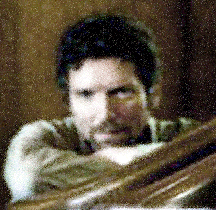The Tao has no expectations.
The Tao demands nothing of others.
The Tao does not speak.
The Tao does not blame.
The Tao does not take sides.
The Tao is not Jewish.
David M. Bader – Zen Judaism
From time to time I will digress from Halfland explore other topics that interest me. I was born in London, England, and raised orthodox Jewish, while being educated at Holy Trinity, a Church of England school. However, my heart has always yearned for the East. I am glad to say that in the last 10 years I have been able to make it to Japan on five occasions and also to China.
For the past couple of years I have taken to translating the Tao Te Ching an ancient Chinese book purportedly written by Lao Tzu around 500 B.C. I can’t speak a word of Chinese, nor can I read Chinese characters but thanks to Jonathan Star in his Tao Te Ching: The Definitive Edition, I don’t have to. Jonathan takes apart every character giving each one their multitude of meanings. In addition to his own translation he also gives examples of how other well-known translations have interpreted the passages.
There are 81 Chapters in all. The book is very concisely written and has been a fountain of inspiration for everyone looking for deeper meaning in life. I first came across the book about 25 years ago. Its multi-leveled meanings continue to inspire me. In 1990 I took John-Roger’s writings and isolated his most Zen-like teachings and compiled a book of his called the Tao of Spirit.
Given the Tao Te Ching is one of the most translated books in history, you may ask why I would want to come up with my own. The answer is that the time spent contemplating the characters and their meanings brings me to a place of peace, understanding, and acceptance. The passages give a different way of looking at life and provide a respite from the materialism that seems to permeate virtually every aspect of our lives, whether we like it or not.
In addition to Jonathan Star’s book, other translations I like are by Stephen Mitchell, Red Pine, and my all time favorite Gia-Fu Feng. In future, I'll be posting my own translation plus a commentary on what it means to me.
Subscribe to:
Post Comments (Atom)

3 comments:
I'll be looking forward to that, as it's something I've never read but want to.
I read the Tao Te Ching back when I was high school aged and focussing more on ideas about meditation and spiritual "enlightenment". It's had a deep and lasting effect... Though I really don't think about it anymore; what remains is that which has soaked into my grain.
(Um, cuz people have grain like wood, and books are wood stain? Sometimes my metaphors come out intuitively, and take a little parsing. :-P)
Thanks Mike and Sven. I appreciate you looking in on this aspect of the blog and welcome your comments, and insights, as I proceed.
Post a Comment